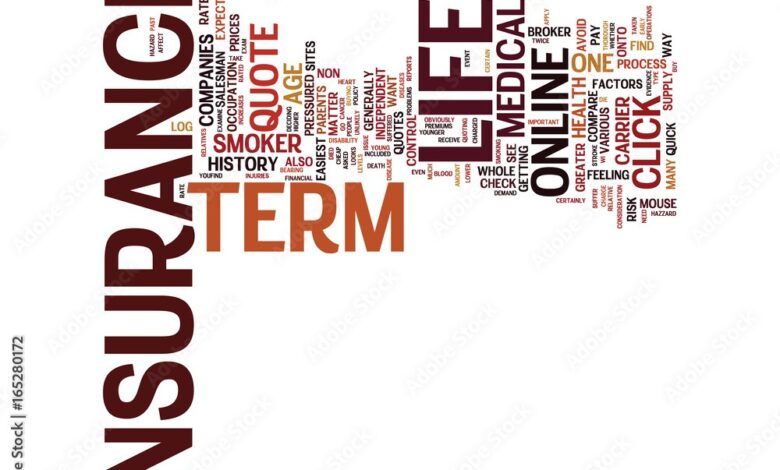A Complete Guide to Getting Life Insurance Quotes Online

A Complete Guide to Getting Life Insurance Quotes Online
Life insurance provides financial stability to your loved ones in the event of your unexpected demise. Getting quotes online is an easy and efficient way to explore your options. This guide will help you navigate the process effectively.
Understanding Life Insurance Needs
1. Determine the Coverage Amount
Assess how much money your family will need for:
- Debt repayment
- Daily living expenses
- Future aspirations (e.g., education, retirement)
2. Choose the Type of Policy
- Term Life Insurance: Provides coverage for a specific period (e.g., 10, 20, or 30 years).
- Whole Life Insurance: Offers lifelong coverage along with a savings component.
- Universal Life Insurance: Combines permanent coverage with flexible premiums and investment options.
Preparing for a Quote
1. Gather Personal and Financial Information
Insurance companies typically require details such as:
- Health history, age, and gender
- Lifestyle choices (e.g., smoking or high-risk activities)
- Income and debt levels to estimate coverage needs
2. Use Online Calculators
Many platforms provide tools to help estimate your coverage by factoring in:
- Outstanding debts (e.g., loans, mortgages)
- Future expenses (e.g., college tuition)
- Income replacement needs
Selecting a Platform
1. Choose Reliable Websites
Consider trusted sources for quotes, such as:
- Direct insurer websites
- Aggregator platforms (e.g., NerdWallet, Policygenius)
- Insurance brokers offering multiple carrier options
Comparing Life Insurance Quotes
1. Provide Accurate Information
Ensure the details you provide are truthful to avoid issues later.
2. Compare Key Factors
When evaluating quotes, consider:
- Monthly or annual premiums
- Coverage amount
- Policy duration (for term life)
- Additional riders (e.g., accidental death or critical illness coverage)
Factors That Affect Premiums
1. Personal Details
- Age and Gender: Younger applicants generally pay less.
- Health: Pre-existing conditions may raise costs.
- Lifestyle: Risky behaviors (e.g., smoking) increase premiums.
2. Policy Specifications
- Coverage Amount: Higher coverage means higher premiums.
- Policy Type: Whole life insurance is typically more expensive than term life.
Tips for Savings and Insurer Evaluation
1. Look for Discounts
Some insurers offer:
- Bundling discounts (e.g., combining auto and life insurance)
- Healthy living incentives (e.g., for non-smokers)
2. Assess the Insurer’s Reputation
Before committing, review the insurer’s:
- Financial Stability: Check ratings from A.M. Best or Moody’s.
- Customer Reviews: Look for feedback on claim handling and service quality.
- Customer Support Options: Ensure they offer reliable support via phone, apps, or chat.
Medical Examinations
1. Understand the Requirements
Some policies require medical exams, including:
- Blood tests and blood pressure checks
- Weight assessments
- Medical history review
Policies that skip medical exams may be more expensive due to increased risk.
Finalizing the Policy
1. Carefully Review the Policy
Before signing, review:
- Terms and conditions
- Exclusions and renewal options
- Total costs compared to the quoted premium
2. Complete the Purchase
- Submit all required documents
- Set up a payment schedule (monthly, annually, or as a lump sum)
Managing Your Policy
1. Safeguard Your Documents
Store your policy documents in a secure location.
2. Regularly Review Your Policy
Revisit your coverage every few years or after life changes (e.g., marriage, children, or career advancements).
Success Tips for Online Life Insurance Quotes
- Be Honest: Misrepresentation may lead to claim denial.
- Compare Options: Review at least 3–5 quotes to find the best fit.
- Ask Questions: Clarify any doubts with the insurer before committing.
By planning carefully and comparing quotes, you can secure a life insurance policy that meets your needs effectively.
